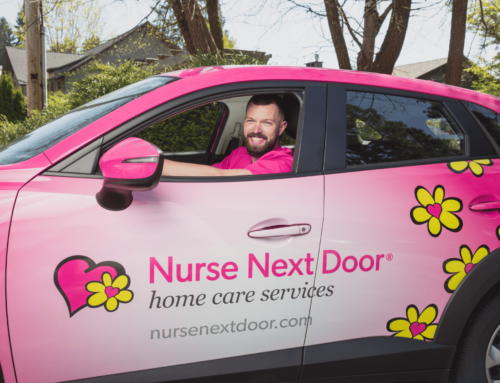Congratulations on considering starting a home health care agency in California! This is the first step and should get you very excited.
If you want to start a home care business in California then you’re in the right place. We have put together this guide to help you learn how to offer home health care services in an easy to follow process. While it will take effort on your part we can help eliminate the guesswork in launching your business. Starting a home care business in California requires careful planning and a deep understanding of the state and local regulations.
One of the first steps in starting your home care business is to register a business name. Make sure the name is available with state and local government and consider getting a domain name for your online presence.
We cover everything you need to know, from understanding the benefits of starting a home health care business and getting a California home care license to developing marketing strategies. Follow along to learn how you can go from idea to owning a home healthcare business.
Starting a Home Care Business
Starting a home care business in California can be a great venture providing essential services to senior citizens and individuals with disabilities. The home health care industry is growing fast driven by an aging population and increasing demand for in-home care services. To succeed in this industry you need to understand the unique requirements and regulations for home care businesses in California. A well planned business strategy, industry knowledge and a commitment to providing quality care is key to building a successful home care agency. Plus choosing the right legal structure such as an LLC or corporation is important for tax obligations and personal liability.
Industry
The home care industry includes non-medical and medical services provided to individuals in their homes. Home care businesses, also known as home health care agencies, employ caregivers, certified nursing assistants and medical professionals to deliver these services. HIPAA compliance is also important to protect patient information and avoid legal issues. Understanding the industry including the difference between home health care and home care is key to navigating the licensing process and compliance with regulations. The California Department of Social Services (CDSS) and the California Department of Public Health (CDPH) are the main regulatory agencies for home care businesses in California.
Benefits of Starting a Home Care Agency in California
Starting a home care business in California can offer many benefits to clients and agency owners. Despite the challenges in healthcare the opportunities and benefits of owning a home care business makes it worth pursuing.
One of the biggest benefits of starting a home care business in California is the state’s growing demand for home health aides and personal care aides. You can serve the increasing care needs of California’s aging population. According to the Bureau of Labor Statistics, employment of home health aides and personal care aides in California is projected to grow 36.9% and 36.7% respectively between 2019 and 2029. Effective marketing strategies like social media and PPC advertising can contribute to your business’s future success.
Plus healthcare costs in California are lower than many other states so it’s a cost effective option for home health and care agency owners to operate their business and make good profits.
California has a favorable regulatory environment for home health care agencies with no certificate of need required for licensing. This makes it easier for entrepreneurs to start their own home health care agency without unnecessary hurdles. Lastly, Medicare, Medicaid programs and private insurance plans in California cover home care services so you have a steady source of clients, business and revenue.
Being a California home care business owner can allow you to make a positive impact in your community, offer quality care to those in need and build a thriving business that generates steady profits. With realistic expectations and a commitment to pay attention to client outcomes your home care agency can overcome challenges and thrive in California’s growing healthcare industry. Plus hiring qualified staff is key to quality care and reputation.
How to Start Your Own Home Care Business in California
Here are the key steps to start a home care business in California:
First get a business license. The requirements and process for getting a business license varies by city and county so check local regulations to comply.
Get a home care business license. This requires an application with business details, background checks and proof of insurance.
Business Entity
Choose the right legal structure for tax obligations, organizational setup and personal liability. Understanding the right business structure is key to compliance and operational efficiency.
California Home Care License, Permits and Accreditations
To legally and confidently operate a home care agency in California you will need to get a home care license from the California Department of Social Services. This includes submitting an application, background checks for staff and proof of insurance. Also get a Home Care Organization License as it ensures compliance with local and state regulations.
HIPAA compliance is also important to protect patient information and avoid legal issues.
You’ll also need to get a federal Employer Identification Number (EIN) from the IRS, register your business with the California Secretary of State’s office and pursue voluntary accreditation from an organization like the Joint Commission or Accreditation Commission for Health Care to show your agency’s high standards of medical care.
Business License
Getting a business license is a crucial step in starting a home health care business in California. The California Department of Public Health (CDPH) issues licenses to home health care agencies. To get a license you must submit an application and meet the requirements set by the CDPH.
The application process involves providing detailed information about your business including its name, address and ownership structure. You will also need to provide proof of liability insurance and a copy of your business plan. The CDPH will review your application and conduct an on-site survey to ensure your agency meets the state’s standards for home health care.
Once your application is approved you will be issued a license to operate a home health care agency in California. Note that the licensing process may vary depending on the type of home health care services you will be offering. By getting the necessary licenses you can operate your home health care business with confidence and compliance.
Business Entity
Choosing the right business entity is a key step in starting a home care business. The most common business structures for home care agencies are sole proprietorships, partnerships, corporations and limited liability companies (LLCs). Each has its pros and cons including differences in taxation, liability and management structure. Consult with a business advisor or attorney to determine the right entity for your home care business. Consider the size and complexity of the business, personal liability and tax implications.
Federal Employer Identification Number
A Federal Employer Identification Number (EIN) is a unique number assigned to businesses by the Internal Revenue Service (IRS). Getting an EIN is a necessary step in starting a home care business as it’s required for tax purposes, opening a business bank account and hiring employees. The application process involves submitting Form SS-4 to the IRS, providing business information and receiving the assigned EIN. This number is important to distinguish your business from others and for interactions with the IRS and other government agencies.
Financial Systems
Setting up a financial system is crucial for the success of a home care business. Setting up a credit card account along with a business checking account can help keep personal and business finances separate. This includes setting up a business checking account, getting a business credit card and implementing accounting and bookkeeping practices. A well organized financial system allows agency owners to track expenses, manage cash flow and make informed decisions about the business. It’s also important for compliance and long term sustainability of the business. Consider consulting with a financial advisor to develop a comprehensive financial plan including budgeting, forecasting and risk management.
Unique Selling Proposition (USP)
Identifying your Unique Selling Proposition (USP) is key to differentiating your home care business from competitors. Research your competitors and define what makes your home care business and its services unique. Use this as the foundation for your branding and marketing.
Including a company description in your business plan is important as it provides investors and lenders with essential information about the business, its structure and offerings. For example, Nurse Next Door has several USPs that set us apart from other home care providers. Our signature Happier Aging philosophy focuses on caring not just for our client’s physical needs but also for their emotional and social well-being. We also offer 24/7 access to a Care Services Center where clients and their families can get support and advice from our team of care experts.
In addition, Nurse Next Door’s caregivers are carefully selected and go through a rigorous hiring process to ensure they have the necessary skills and qualities to provide great care. We also provide ongoing training and support to our caregivers so they can continue to provide the best care to our clients. Learn about our Caregiver to Business Owner program which empowers caregivers to become successful franchise owners.
By highlighting your own unique strengths and qualities and communicating them to your target market, you can differentiate your home care business from competitors and attract the right clients with confidence.
Operations Center
To run your home care business effectively you need to set up an operations center. Having a dedicated office space can facilitate staff meetings, client consultations and administrative tasks. This will help you to streamline scheduling client visits, managing client records and communicating with your staff. Care management plays a big role in streamlining these operations and enhancing the efficiency of home care services.
Start by buying necessary equipment and office supplies such as computers, phones and filing cabinets. Hire administrative staff to manage the day to day operations of your home care business such as answering calls, scheduling appointments and handling client inquiries.
By having an operations center you can provide your clients with a professional and organized experience. Plus this will free up your time to focus on growing your business and providing great care to your clients.
Business Plan
A business plan is essentially a roadmap for your home care agency. It outlines your business goals, target market, marketing and sales strategies, financial projections and more. With a comprehensive business plan in place you can make informed decisions about your business and track your progress towards your goals.
Also a well written business plan is important if you plan to seek financing from investors or lenders. It shows you have a clear vision for your business, understand the market you are entering and have a solid plan to achieve profitability. Including financial forecasts in your business plan is important as it outlines your business goals and strategies, guides your operations and attracts funding from lenders and investors.Lenders and investors want to see you have done your homework and your business has high chances of success. So take the time to create a detailed and researched business plan to set yourself up for success.
California’s regulations for home health care businesses can be complex so it’s important to consult with the California Department of Social Services to ensure you are complying with all the requirements. Also stay up-to-date with any changes in regulations and adjust your operations accordingly.
By following these steps you can launch a successful home care agency in California. Remember to highlight your unique approach and what sets your home care business apart from others in your industry to attract and retain clients.
Recruiting and Training Your Non-Medical and Medical Staff
Recruiting and training a qualified staff of non-medical and medical professionals is essential to provide high quality home health care services. You will need to hire certified nursing assistants, home health aides and other medical professionals to care for your clients. Make sure your staff is properly trained and certified to provide the level of care required by your clients.
Develop a comprehensive training program that includes both classroom and on-the-job training. Your training program should cover topics such as patient care, medical procedures and communication skills. Also provide ongoing training and education to your staff to keep them up-to-date with the latest medical procedures and technologies.
The California Department of Public Health (CDPH) requires home health care agencies to provide ongoing training to their staff. By investing in the training and development of your staff you can ensure your agency provides high quality care to your clients and stay competitive in the market.
Recruiting and Training Your Non-Medical and Medical Staff
Recruiting qualified staff are crucial to the success of your California home care agency. Hiring professional caregivers is essential for providing basic daily assistance and specialized home health care services. Look for caregivers with the right skills and experience and provide them with comprehensive training to ensure they can provide high quality care. You need to hire employees who are qualified and empathetic to provide quality care. Also hiring qualified healthcare professionals like certified nursing assistants (CNAs) and home health aides (HHAs) ensures personalized care services. Develop a plan for ongoing training and professional development to keep your staff up-to-date with the latest best practices, procedures and technologies.### Marketing Your Home Health Services
Once you have your home care agency up and running you need to market your services to attract clients. Use local newspapers to advertise employment opportunities to reach potential candidates in the community. Network with patients and healthcare providers, advertise in local media outlets and create a professional website and social media presence to reach your target market. A marketing plan is a critical component of a business strategy, guiding promotional efforts and aligning with broader business goals. Highlight your unique selling proposition and what sets your home care business apart from others in your industry to attract and retain clients.
Growing Your Business
Growing your home health care business requires planning and execution. Develop a comprehensive marketing strategy that includes online and offline marketing tactics. Your marketing strategy should include social media marketing, content marketing and search engine optimization (SEO) to reach your target market.
Networking with other healthcare professionals and organizations is key to building relationships and referrals. Stay up-to-date with industry trends and technologies to stay competitive. Continuously evaluate and improve your services to meet the changing needs of your clients.
By focusing on providing great care and building strong relationships with your clients and partners you can grow your business and become a trusted provider of home health care services. Also explore new business opportunities like partnering with hospitals or healthcare systems to expand your services and reach new clients.
Should You Join a Franchise or Start Your Own Home Health Care Business?
When starting a home health care business in California you may consider joining a franchise or starting your own business. Joining a franchise provides the benefits of a proven business model, established brand recognition and support from the franchisor team. But starting your own business gives you more flexibility and control over your services and operations.
Understanding and managing startup costs is crucial whether you join a franchise or start your own business.
It’s important to seek professional advice from experts like lawyers and accountants when setting up a business entity. Consulting with professionals will give you valuable insights needed for developing business plans, understanding licensing requirements and ensuring the operational framework is sound.
If you decide to join a franchise research different franchise options and review franchise disclosure documents carefully. Look for franchises that align with your goals, values and budget and consider the franchise fees, royalties, licensing and ongoing costs as well as the training and support provided by the franchisor.If you decide to start your own home care business develop your own business model, procedures, marketing strategy and brand. You’ll have full control over your services, pricing and hiring practices. But you’ll also need to invest time and resources into building your brand recognition and reputation.
Final Check
The final check before you start your home health care business is to review and finalize your business plan, get the necessary licenses and certifications and hire staff. Make sure your agency meets all the requirements set by the California Department of Public Health (CDPH) and other regulatory agencies.
Review your business plan and make any necessary adjustments before you launch your agency. Build relationships with healthcare providers, hospitals and other organizations to build a network of referrals and partners. By planning and preparing well you can ensure your home health care agency is successful and provides great care to your clients.
Stay focused on your business goals and objectives and continuously evaluate and improve your services to meet the changing needs of your clients. Also maintain compliance with all regulatory requirements including patient privacy and confidentiality. By following these steps and staying committed to your vision you can have a successful and reputable home health care agency in California.
That’s it!
In summary launching a home care agency in California requires research, getting the necessary licenses and certifications, developing a comprehensive business plan, recruiting and training staff and marketing your services. Getting professional liability insurance is a requirement to get a home care license and ensure comprehensive coverage against potential risks. It’s also important to get liability insurance for your home care business as it’s a requirement to get a home care license and ensure comprehensive coverage against potential risks. Nurse Next Door, a leading home care franchisor, can provide you with the support and resources you need to start a profitable home care business in California.
Together we can create a world where people can age with dignity and purpose—right at home.

 x
x







